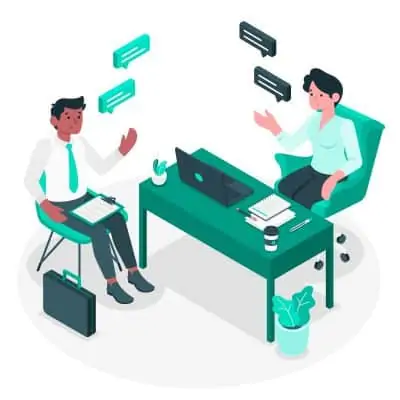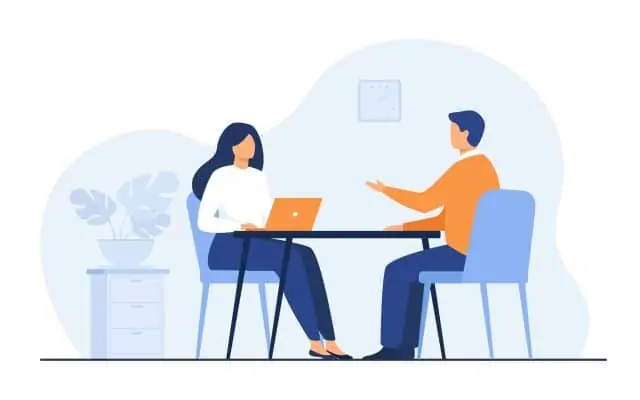
Customer interviews allow you to talk to the people who buy your product. It’s a terrific approach to learn about your customers’ problems, the solutions they’re seeking for, and how you stack up against your competition.
Benefits of Customer Interviews

1. Help to understand customer demand and desires
When exploring a new product or service, you should first determine whether or not there is a demand for it among your current customers. Of course, you will never create a new product if no one would buy it. Consumer interviews can assist you to see if your customers are interested in your products, services, features, or campaigns by assessing customer demand.
While you have customer interviews with your target audiences, it’s the best way to find their demands. If something is unclear or confusing, you can inquire about specific experiences and ask follow-up questions. Furthermore, the better you understand your clients’ needs, the more successful your marketing, sales, and customer service activities will be.
2. Help to sympathize with your customers
Customer interviews are a wonderful approach to discover the problems that your customers face while dealing with your business, not through the customer services line. It’s much easier to empathize with them when they provide criticism if you’re familiar with their concerns. You not only get to see how the problem affects the client, but you also get to see why it’s so vital to have it addressed.
3. Help to gain trust from your customers
Even if you don’t get any meaningful information from the chat, customer interviews are still beneficial. As shared by many successful dropshipping agent, whatever you’re talking about, they show customers that you care about their experience and want to make it better for them. Even if they spend an hour pitching stupid criticisms and offering unrelated suggestions, having these dialogues indicates your dedication to customer success.
4 Tips to have successful Customer Interviews

Tip #1: Keep your mind open during customer interviews
It’s tempting to become defensive when you hear bad comments about your product or service. While you may feel justified in dismissing this input, the fact remains that customers are sharing their impressions of your firm and its products, and their feelings are unassailable.
When you go into customer interviews, keep in mind that you might hear some comments or feedback on which you disagree with. Instead of shutting them down and wasting everyone’s time, listen actively to what they have to say. There will always be a few outliers with strange input, but those aren’t the ones you should be concerned about. You want to hear about the difficulties that customers have repeatedly brought up so that you can make the required modifications for their benefit as well as yours.
Tip #2: Set the right questionnaires to get your interview target
Set a goal for your client interviews before you start thinking up questions. What do you hope to accomplish during your time with the customer? Are you working on a new product and want to hear from your current customers? Or are you hoping to have a better understanding of the client journey so that you may improve it?
As you prepare for interviews, make a list of questions that will assist you in achieving your overall objective. Open-ended questions are preferable to “yes or no” inquiries because they allow interviewees to completely express themselves and explore areas you might not have considered.
Follow-up inquiries should also be used to clarify crucial ideas, especially if something appears unclear.
When you’re getting ready for the interview, think about how the customer might reply to your questions and what questions you might ask as a follow-up to get more information.
You can go into an interview with various objectives, but stating them clearly ahead of time will save you time and energy.
Tip #3: Follow-up after customer interviews
Before you leave the interview, thank the customer for their time and ask if you may contact them again if you have any other questions. This leaves the possibility of obtaining additional information or conducting a second interview open if necessary.
Interviewing the consumer about a specific problem and then re-interviewing them after making a change is one effective strategy. That way, you’ll be able to see if what you did was effective in resolving their problem. This also establishes continuous communication with the customer, which will help you build a stronger relationship with them over time.
Tip #4: Learn from the customer interviews outcomes
After you’ve finished your interviews, go over your consumer feedback and look for patterns. Because the most common problems affect the most customers at your company, you should prioritize them first. Correcting these problems should increase customer happiness and improve the entire customer experience.
Customer interviews can reveal a lot about a customer’s concerns and how well your company solves them. When developing new ideas, it’s tempting to shut your team in a room but keep in mind that your consumers should always be involved.
Private Agent for Dropshipping Success